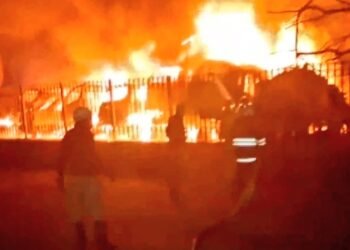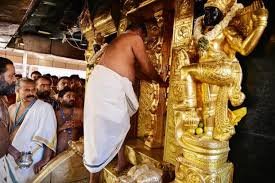The contrasting reactions to the Bishnupur ambush reveal simmering hostility between valley and hills, with Assam Rifles caught in the middle.
BY Navin Upadhyay
The September 19 ambush on an Assam Rifles convoy at Nambol Sabal Leikai in Bishnupur, which killed two jawans and left five critically injured, has once again exposed the deep fault lines between Manipur’s hill and valley communities. Kuki-Zo groups were quick to condemn the attacks, while Meitei civil society organizations remained conspicuously silent.
In the immediate aftermath of the attack, Kuki-Zo organisations such as the Kuki-Zo Council (KZC), the Kuki National Organisation (KNO), and the United Peoples Front (UPF) issued strong condemnations. Joining them was World Kuki-Zo Intellectual Council (WKZIC), which said that “ the attack on 33 Assam rifles personnel by unknown and unidentified armed miscreants, suspected to be Meitei militants/radicals is a direct challenge to the government of India and its sovereignty.”
In Churachandpur, hundreds of Kuki-Zo civilians held candlelight on Saturday vigils and solidarity marches to mourn the deaths of Assam Rifles personnel. The demonstration reflected the community’s recognition of the Assam Rifles as both a counter-insurgency force and a humanitarian presence in the hills.
The procession began at the Public Ground of Hiangtam and proceeded to the Peace Ground in Tuibong. Holding candles, men, women, and youth walked in silence, carrying banners and the national flag. The glowing lights along the streets symbolized mourning, resilience, and collective support for the armed forces.
READ: Will Assam Rifles Ambush Force Centre to Rethink AFSPA in Manipur Valley?
Community leaders, student groups, church bodies, and civil society representatives participated in the march. Speakers honored the soldiers as martyrs whose sacrifice preserved peace and national security, urging the community to remain united in their memory. The program concluded at the Peace Ground with prayers and tributes, reinforcing solidarity and resilience in the face of tragedy. Kuki-Zo community also held similar candlelight vigil in Tengnoupal.
(Here are glimpses of Candlelight vigil and solidarity march in Chuarchanpur on September 20 to mourn the two Assam Rifles Jawans ambushed on September 19 in Bishnupur)
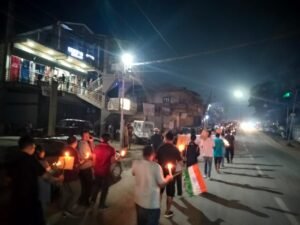
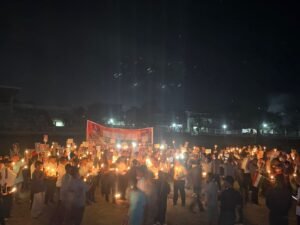
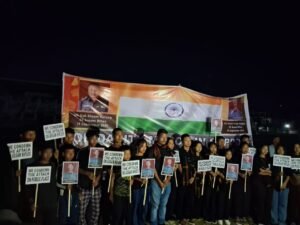
By contrast, Meitei civil society organisations (CSOs) were conspicuous in their silence. Governor A.K. Bhalla and former Chief Minister N. Biren Singh did issue statements condemning the killings. The Imphal-based Armed Forces Ex-Servicemen Association Manipur (AFESAM). Which represents nearly 13,000 ex servicemen, also condemned the attack, highlighting the Security force’s professional restraint in avoiding retaliatory fire to prevent further collateral damage. The veterans condemned the ambush, calling it a betrayal of the principles of the local people, and prayed for peace and the departed soldiers’ souls. But not a single major Meitei CSO stepped forward to denounce the ambush. The AFESAM .also held a candle light prayer at Kandla West Gate in Imphal.
The silence is not without context. Historically, valley-based armed outfits such as UNLF(P), PLA, and PREPAK have frequently targeted the Assam Rifles, whom they view as the embodiment of the Indian state’s military presence in Manipur. From 1991 to 2009, Assam Rifles units suffered a string of attacks in the valley. Even after peace agreements, allegations persisted of these groups’ involvement in violence, including during the 2023 ethnic conflict. Against this backdrop, the muted response from Meitei organisations appears less an oversight and more a reflection of longstanding hostility.
READ: Was Zubeen’s Death Concealed for Hours to Serve Business Interests?
That said, there were individual voices of dissent. In Nambol in Bishnupur, Meitei women held a small protest to express their anger over the killings, showing that condemnation of violence was not entirely absent from the valley.
I stand in solidarity with the people of Nambol Sabal Leikai. The tragic killing of Assam Rifles personnel in yesterday’s incident is deeply condemnable. The Assam Rifles have been tirelessly working on the ground to restore peace and normalcy in Manipur, and such acts of… pic.twitter.com/ES23FZeHBl
— N. Biren Singh (@NBirenSingh) September 20, 2025
Yet, the lack of a collective, organised statement from Meitei CSOs contrasts sharply with the visible grief and solidarity shown in the hills.
The ambush and its aftermath highlight how ethnic divides shape not only the ground realities of violence in Manipur but also the narratives that follow. For the Kuki-Zo, the Assam Rifles are seen as protectors, even if imperfect ones. For many in the valley, the same force is viewed with suspicion, if not hostility. This divergence makes any unified response to insurgency in Manipur deeply challenging.
As Manipur reels from another deadly attack, the silence of the valley and the solidarity of the hills reflect two opposing lenses on the same tragedy—an enduring reminder that Manipur’s security crisis cannot be separated from its ethnic fault lines.





